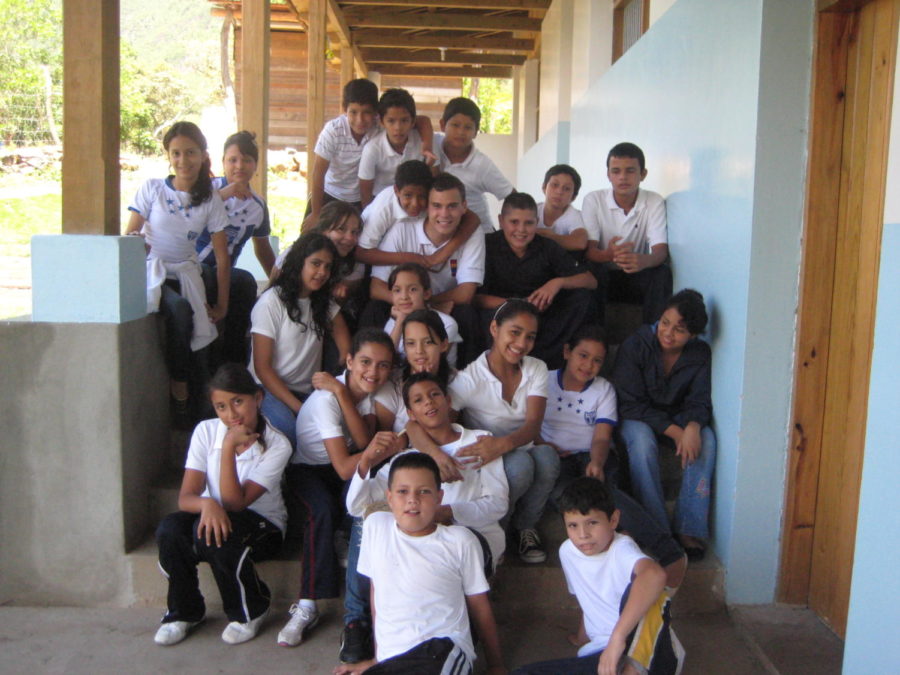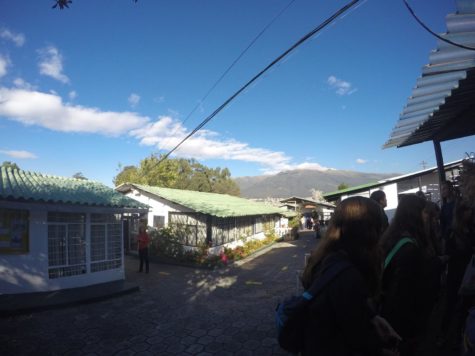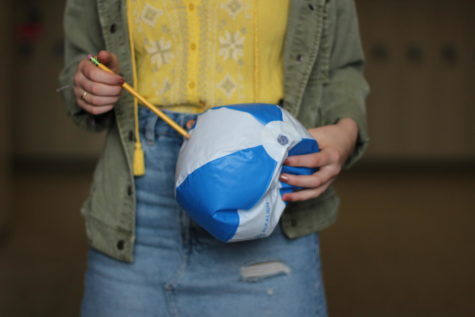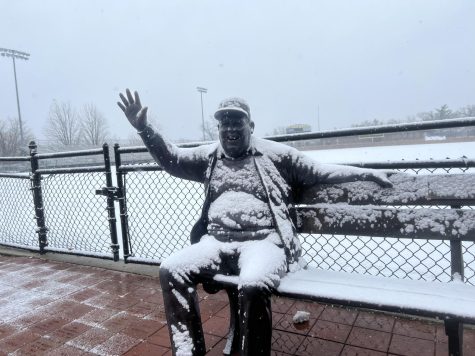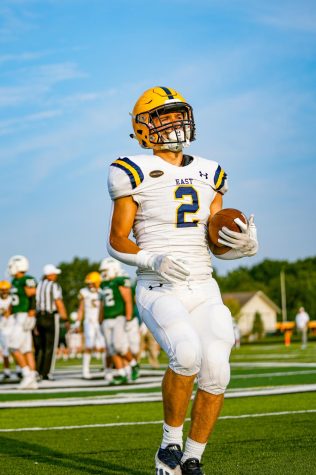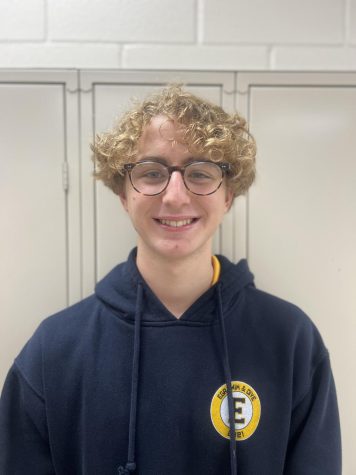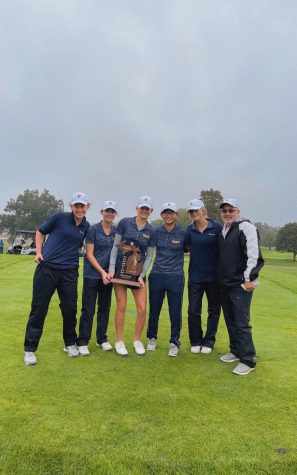How teaching abroad is more like learning abroad
Q: Why did you decide to teach abroad?
Tad VandenBrink: When I graduated from college I really didn’t have the thought and expectation that I was going to go overseas. What I found though was that it was hard to get a job when I graduated. I didn’t have any experience, my connections weren’t there, no one in Michigan was hiring. So I began exploring other opportunities to kind of beef up my resume and get some of that teaching background and experience. I had friends who had connections to Honduras and found out they needed an additional teacher down there so I ended up doing that in order to get some teaching experience, do some traveling, and make enough money to live off of.
Anne Lagrand: I wanted to get out of Grand Rapids basically. I didn’t actually have aspirations to teach initially; I didn’t go to school for teaching for my BA level. I was able to do this because it was a low pay program, so I was able to do that without an official teaching degree and then after my two years I came back and got my teaching degree and masters.
Q: Where did you live and teach?
TV: I lived up a mountain just outside the town; it was about 5,000 feet in a small community called Villa Verde. It was a small community probably about 40 to 50 people and I lived with a Honduran family. And then the school that I taught at was about halfway between the mountain village and the community of Gracias.
AL: Many years ago I taught in Sárospatak in Hungary which is a very tiny town. I taught English and History there for two years.
Q: Was it anything like what you expected? If yes, how so?
TV: I honestly had no idea what to expect. I interviewed to go down to Honduras in probably the first week of December and within a week I pulled the trigger and a week after the holidays I was on an airplane flying down there. So I really didn’t have a whole lot of time to kind of digest what I was getting myself into and I really had open expectations in terms of what it was going to be which I think is the best way to do it, because if you set expectations of what it’s going to be like I might have freaked out a little bit.
AL: I didn’t really know what to expect; the only teaching experience I had before that was right out of college. I had gone to a Navajo reservation in Gallup, New Mexico and I teacher aided there for a year, which also taught me flexibility but it also taught me that I didn’t like middle school students. I was glad to be teaching at the high school level, I think I just appreciate the level of maturity a little more.
Q: What was your school like?
TV: It was a private bilingual school so they took classes in both Spanish and in English. It was a really cool setting, you looked up at the highest mountain in all of Honduras, Celaque, which is just over 9,000 feet. So it had a really cool rural feel to it but the buildings were built all facing a courtyard and then everything was open air. For standards, in terms of Honduran schools down there, it was very nice.
AL: It was mostly a boarding school so the kids lived there on campus during the week and then they would go home on weekends. They came from a variety of backgrounds, not ethnically, but in terms of socioeconomic status. It was a 5 year program so the first year they would just take intensive English and then the rest were studies in both Hungarian and in English, but I obviously taught just in English.
Q: What was it like teaching in a different country?
TV: It was challenging because of the rural conditions. The community that I lived in only had electricity and running water because the Peace Corps had just finished bringing running water and electricity to that community 10 or 15 years earlier. I took three years of Spanish in high school and a semester in college so the whole language thing was difficult. It was definitely a little bit of a culture shock in terms of me being a rugged traveler up to that point, but it was a lot of fun.
AL: It was very different. The degree of respect that students give in other countries is very different, almost to the point of being unsettling. Students would rise when I entered the classroom, they would not leave unless I had left first, and they called me “Sir” for unknown reasons. They were just taught to be very very respectful of teachers.
Q: How was the culture and teaching different?
TV: Teaching wise it was really weird because the school I was at used an American curriculum. So I taught U.S. history and World History both from an American perspective to Honduran students and it was the weirdest thing because that’s what we were told we had to do. There were also the challenges that I have here in the United States in terms of student engagement in class, completion of homework, and a variety of tests. Those are all the exact same no matter where your student population is. There were differences in terms of culture but the classroom environment and the students all came with the same sort of challenges.
AL: Largely, it was a really responsible group of students. For example, if I forgot to ask to collect the homework, someone would volunteer that I needed to collect it. I think this was partly due to the hold over from Communism. It was very much a teamwork atmosphere. There was no individual competition between the students. But sometimes that would work against them because cheating was crazy. It was so rampant, both in class and outside of class. They were living in these boarding schools during the week so they would copy each other’s homework and copy on tests. I had a colleague who taught math and one year he said he made twenty-seven different versions of a test because he knew they were cheating. So that was a different thing to get used to.
Q: Were there any school systems differences in general? Was there was more academic pressure?
TV: Since it was a private school and students were choosing to go there and they were choosing to take classes in English, I’d say yes. The expectation in Honduras is that you’re not going to go to college after graduating high school. I think that would be the biggest difference in terms of the culture of education. It’s a challenging place to be; if you can get a high school diploma that’s great. A lot of kids are in the bilingual school so they can learn English and then utilize those English skills to find a job after high school doing something else, usually something within tourism. Here in East Grand Rapids it’s college prep. There it’s a little different because that isn’t really an expectation.
Q: What did you get to take away from this experience?
TV: I think personal growth was the biggest one, to immerse myself in a different culture when I was down there. I grew not only personally but professionally as well.
AL: It encouraged me to pursue teaching when I didn’t want to before. My mom was a teacher and my dad was a professor so I kind of wanted to break away from that. It is a challenging job obviously but one of the things I like about teaching is you are constantly learning, you are kind of a lifelong student, being exposed to new things. Teaching is really the best way to learn about a subject.
Q: What is the most important thing you learned?
TV: It’s crazy because my brother does a lot of traveling in Nicaragua and people are happy in central America. They have only a fraction of the stuff we have here in the United States but they are just happy people. I see that as well; you don’t need a lot to have that kind of happiness. That was a big takeaway.
AL: Flexibility, that’s something that all teachers learn, how to think on their feet; if something doesn’t go well, if there’s some sort of unexpected thing that arises in the classroom, you have to be able to kind of roll with that and come up with a plan B.
Q: Has it changed your teaching style in any way?
TV: Those first couple of years of teaching are just trying and seeing what is successful and what works and doesn’t work and adapting as you go. I think starting and working in an environment like living in Central America and working with kids whose second language is English is challenging. The challenges that came in the classroom prepared me for the challenges I was going to face in different areas.
AL: Not significantly. I think if anything, they were more used to the lecture format. I think that when you move back here, you do have to break it up. You can’t do an entire hour’s worth of lecture here or kids will space out. But there, that was kind of what they were accustomed to.
Q: Would you recommend other teachers or students go abroad?
TV: Totally. Outside of the professional experience I got, traveling over there was phenomenal. I got up to Guatemala, Honduras, and out to the Caribbean and the coast as well. So I would definitely encourage it if you have the opportunity to study abroad. Right now we’re talking about the Peace Corps in my U.S. history class and that’s a great example of actually traveling and doing work within your professional area or just helping people out on the government’s dime. There are options out there, I highly encourage it.
AL: Definitely, it’s really good to help open up your horizons. My nephew is going off to join the peace corps and teach math in Lesotho in South Africa and I’m encouraging that. I think that it’s just a great opportunity and it opens you up to new things that you wouldn’t get a chance to see otherwise.

